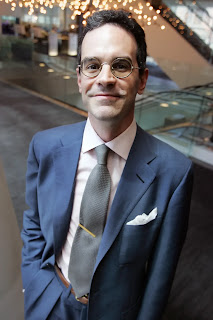We are not wholly-individualized beings living in our own orbit; our actions can have negative externalities for those around us.
In a new survey conducted by The Harris Poll, a shocking 41% of Americans said that they supported a ban on reclining seats on airplanes.
I am, proudly, one of the 41%.
Seat-reclination does not happen in a vacuum. It was, in fact, Kamala Harris who in 2023 remarked that "None of us just live in a silo. Everything is in context."
(Read my post about "coconut-conservatism" here.)
So, being that we live in a context and are not, as Amitai Etzioni would say, "individual, free-standing agents," why do we care so little for our fellow travelers?
I, being a 6 ft 3 in male, have a special disdain for airplane seat reclination. It is already a tight squeeze in there; to have the person in front of you recline their seat can make sitting comfortably nearly impossible.
I recall one particularly awful flight from Arizona to New York. It was a red-eye (a flight that departs at night, and arrives in the morning) and I was already running on little sleep. Upon sitting down, the lady in front of me decided to, in an especially gratuitous fashion, recline her seat back. I was crammed, almost comically so. My legs had no choice but to rest in the aisle, occasionally being knocked around my the snack cart. For the duration of that flight, I was unable to get a wink of sleep; it was five hours of misery.
Now, you may ask: Why didn't I say anything? Why didn't I speak up?
It's a good question. I am not one for confrontation, especially in tight, public spaces. Plus, no one wants to be a Karen.
Earlier this year, a couple boarding a Cathay Pacific airplane, traveling from Hong Kong to London, was banned from the airline for making a stink about a passenger's egregiously reclined seat. The couple's response to the selfish passenger, which was obviously wrong and wildly inappropriate (see video here), raises the question of whether allowing people to recline on flights, especially shorter, domestic ones, is a sustainable practice.
I think that we ought to remember that we are, as Etzioni wrote, "not merely rights-bearing individuals but also community members who are responsible for each other." Let us act more in this way.









